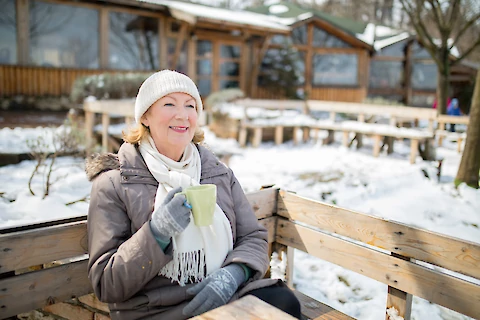
Winter, a season of joy and festivity, poses hidden health risks for our beloved seniors. One of the most significant risks is dehydration. While many consider dehydration a summer problem, the risk can intensify during colder months. Lower temperatures, dry air, and less perceptible signs of thirst make it easy to underestimate how much fluid our seniors need, leading to detrimental health consequences.
Today, we'll look into the importance of keeping seniors hydrated this winter. We’ll also look into practical strategies to ensure elderly family members stay safe, healthy, and adequately hydrated.
Understanding Seniors' Hydration Needs
Seniors have unique hydration requirements due to various psychological and physical factors. As we age, our body's water content decreases, and our sense of thirst diminishes. In addition, certain health conditions and medications common among seniors can affect fluid balance. During winter, indoor heating systems can lead to drier air, increasing fluid loss from the body. Understanding these factors is the first step in keeping seniors hydrated this winter.
The Health Risks of Dehydration in Seniors
Dehydration is not a simple health issue. It's a major risk factor for numerous severe conditions. It may exacerbate chronic illnesses like kidney disease or contribute to urinary tract infections. Dehydration can also lead to dangerous falls due to dizziness or weakness. In extreme cases, severe dehydration may even lead to hospitalization.
Recognizing Signs of Dehydration
Dehydration manifests subtly, particularly in older adults. Common signs include fatigue, dizziness, confusion, or infrequent urination. Dry skin, a known winter issue, can also indicate dehydration. Changes in behavior may also indicate dehydration. A usually sharp and involved senior may become disoriented or lethargic. Noticing these signs early can make a significant difference in keeping seniors hydrated this winter.
How to Encourage Seniors to Drink More Fluids
Encouraging fluid intake in seniors often involves creativity and patience. Plain water might not be appealing. Try incorporating a variety of hydrating beverages like herbal tea, milk, or diluted fruit juice. Soups and broths are excellent winter-appropriate ways to increase fluid intake while providing essential nutrients.
Hydrating foods, like cucumbers, oranges, and watermelon, can also increase overall fluid intake. Just remember that these foods are not a substitute for drinking fluids. Instead, they are a supplement to a hydrating diet.
Practical Tips for Keeping Seniors Hydrated This Winter
Keeping seniors hydrated this winter requires a multi-faceted approach.
- Regularly remind seniors to drink fluids, even when they're not thirsty.
- Consider investing in "smart" water bottles that remind seniors to drink more.
- Keep water or other beverages within easy reach.
- Monitor fluid output by paying attention to the frequency and color of urine. A darker color usually indicates insufficient hydration.
Making hydration a routine can also help. Establish a pattern of drinking a glass of water with medication or a cup of tea after a meal. Moreover, ensure the senior's living environment is not overly heated, reducing excessive body water evaporation.
Senior Helpers Jersey Shore Is Here to Help
Winter's chill shouldn't mask the critical need for keeping seniors hydrated this winter. With the right strategies, you can ensure your elderly loved one’s hydration needs are met. If your senior loved one lives in Atlantic City, Absecon, Egg Harbor Township, Millville, or Mays Landing and needs assistance with day-to-day in-home care, Senior Helpers Jersey Shore can help. Contact us to learn more about our in-home care services!